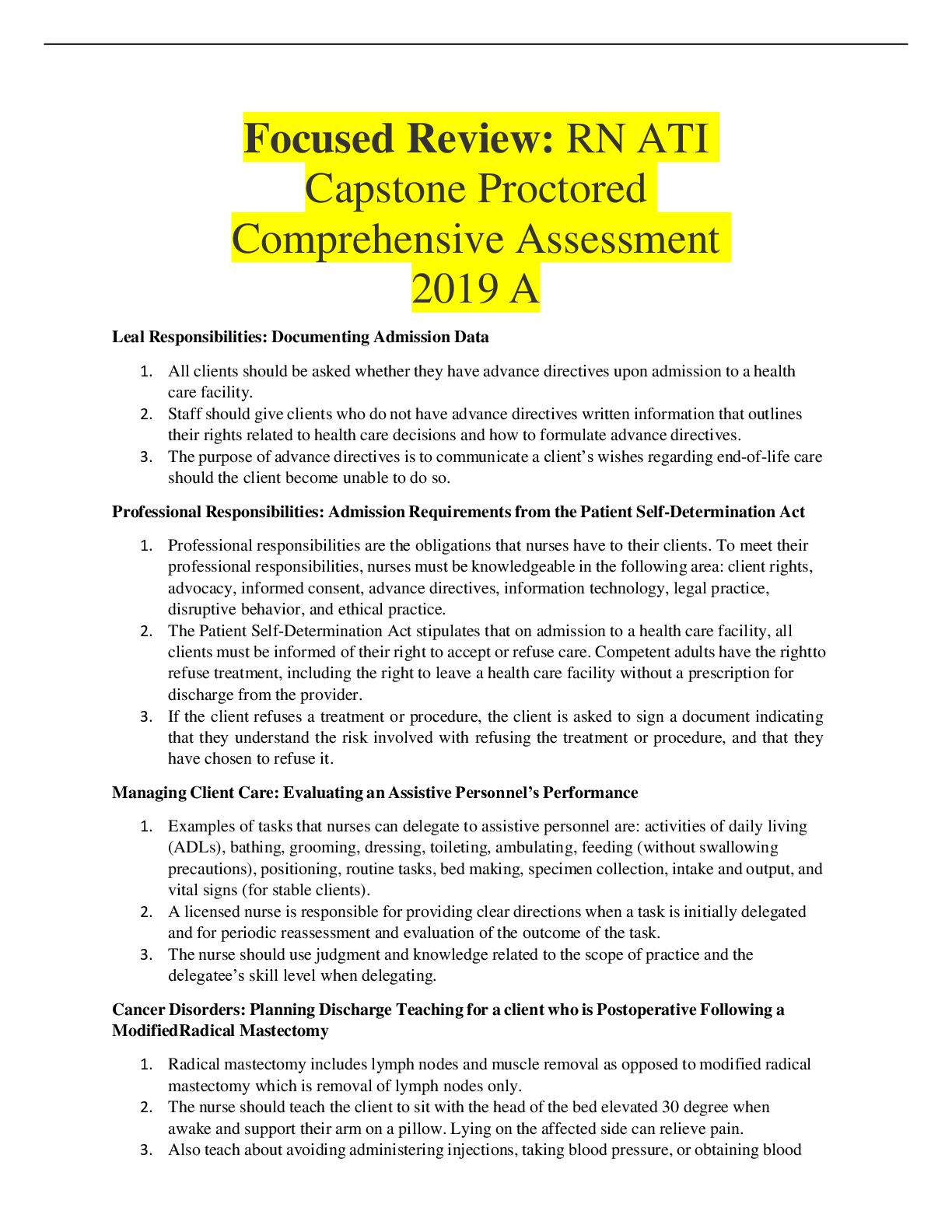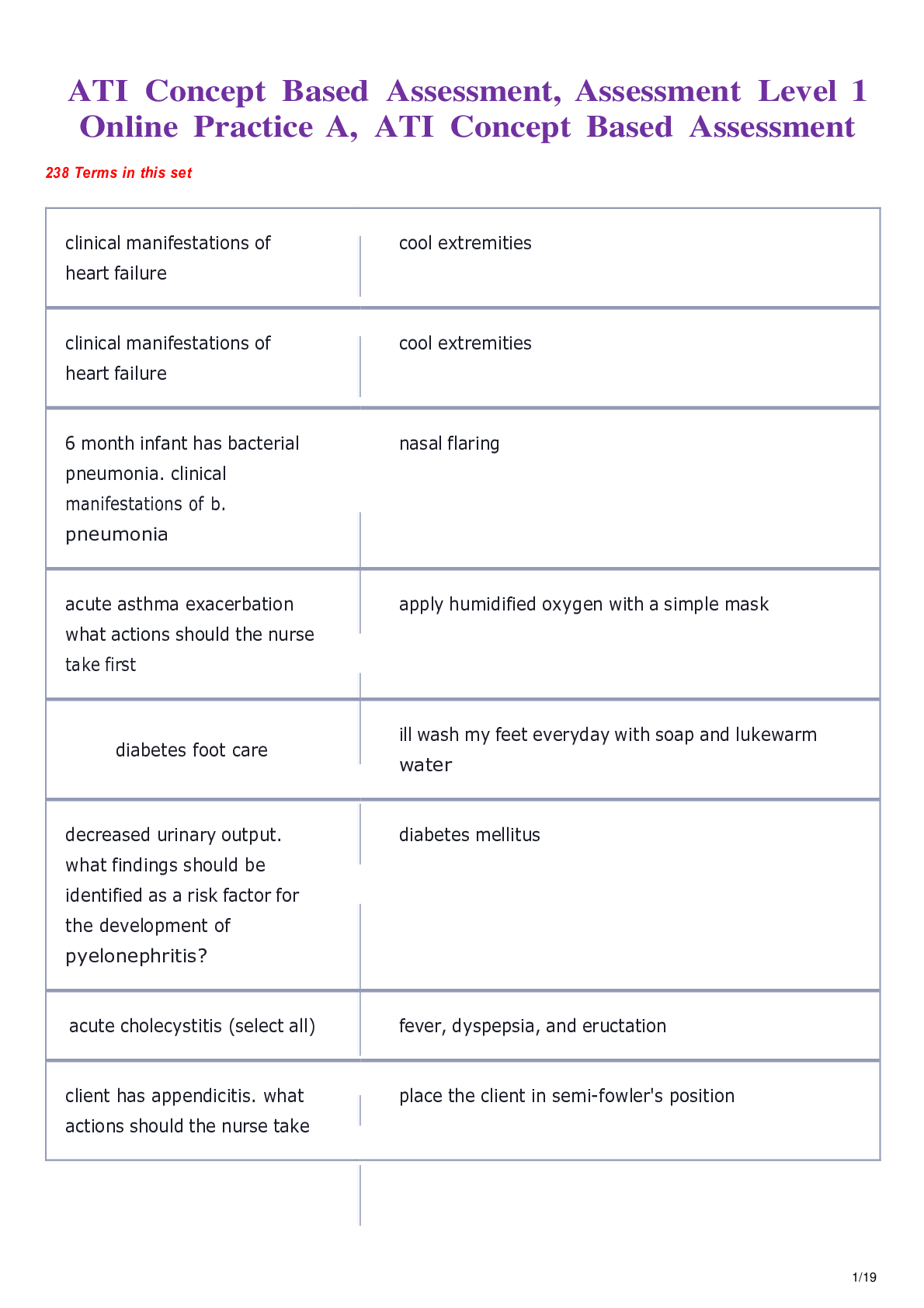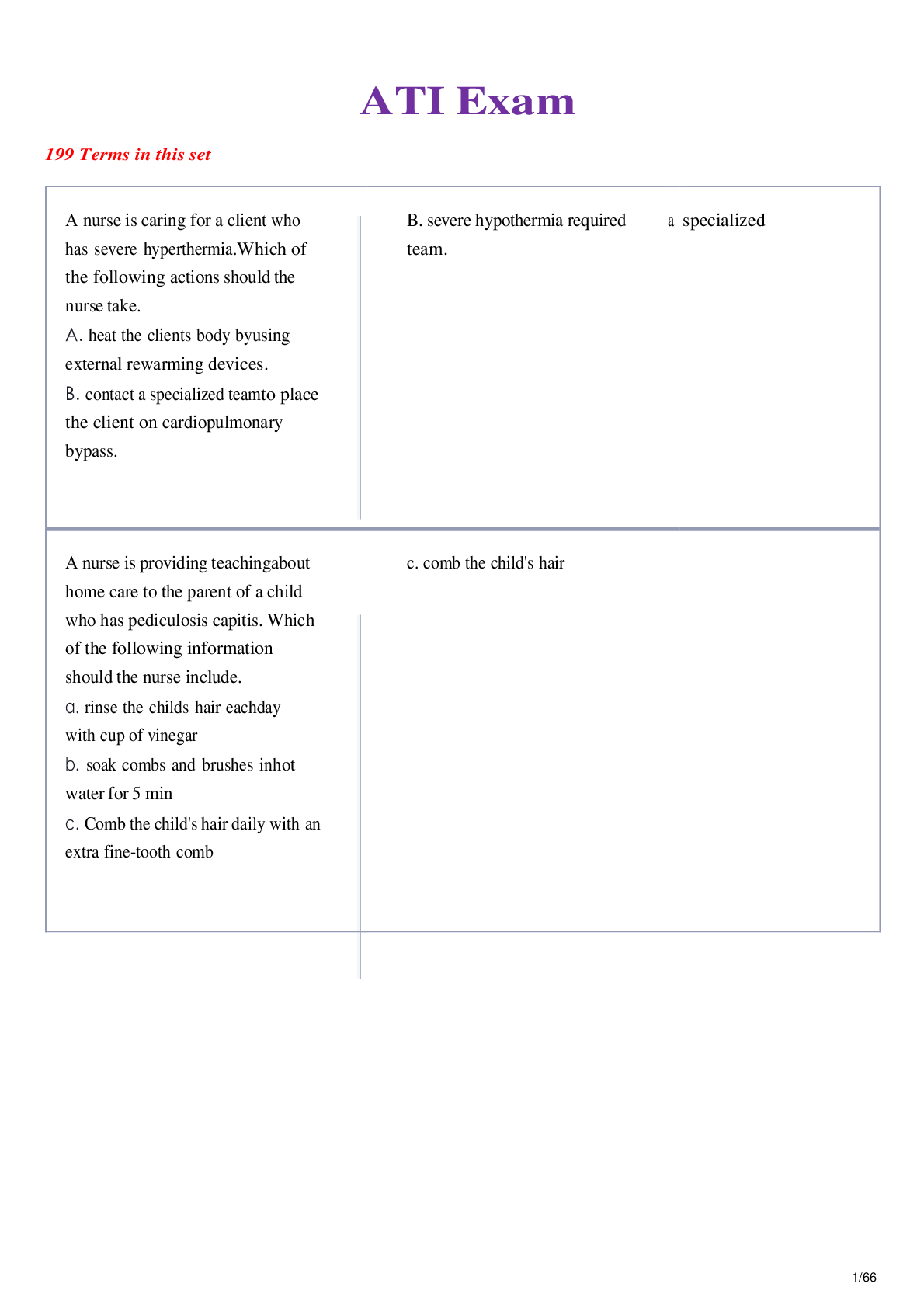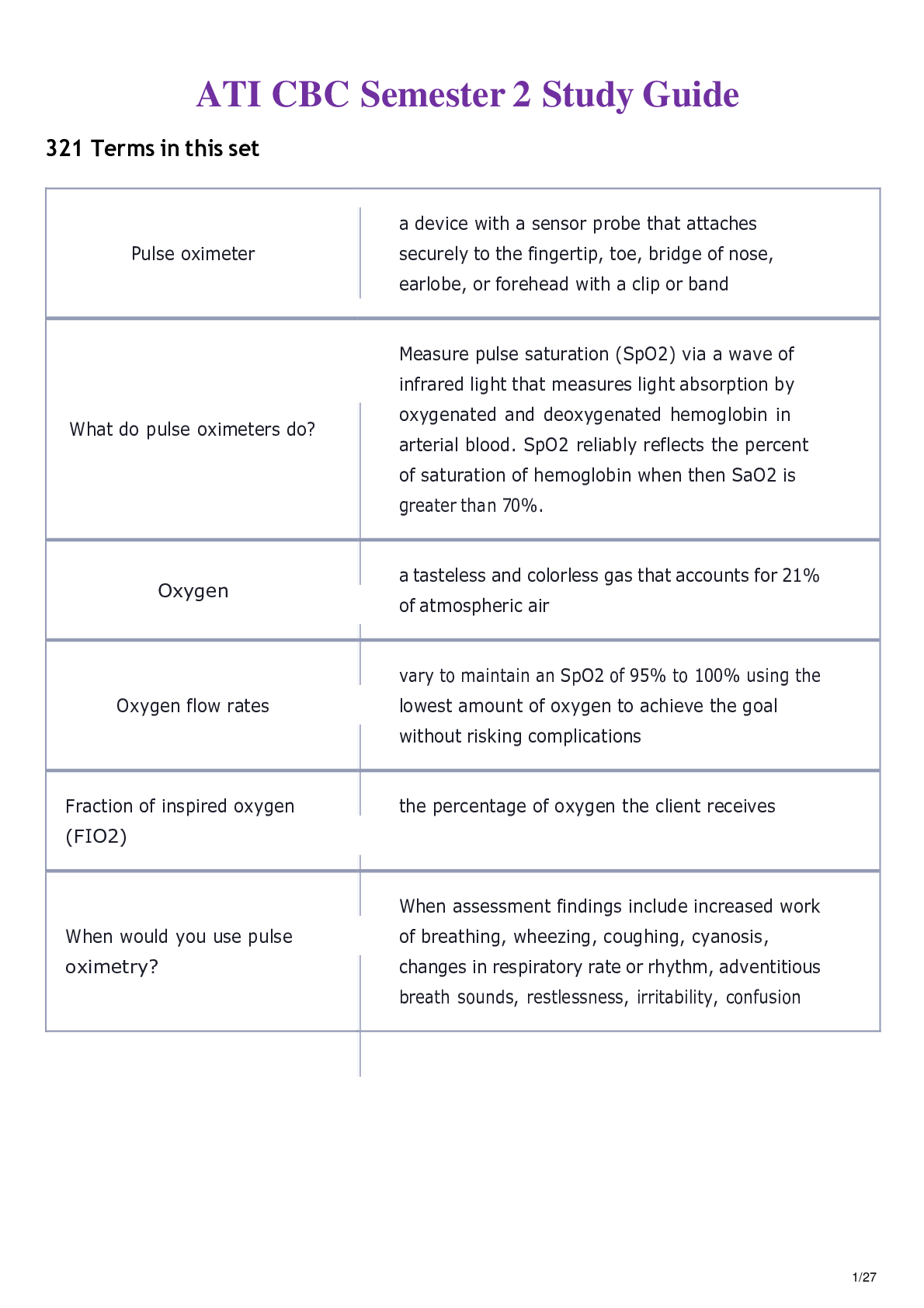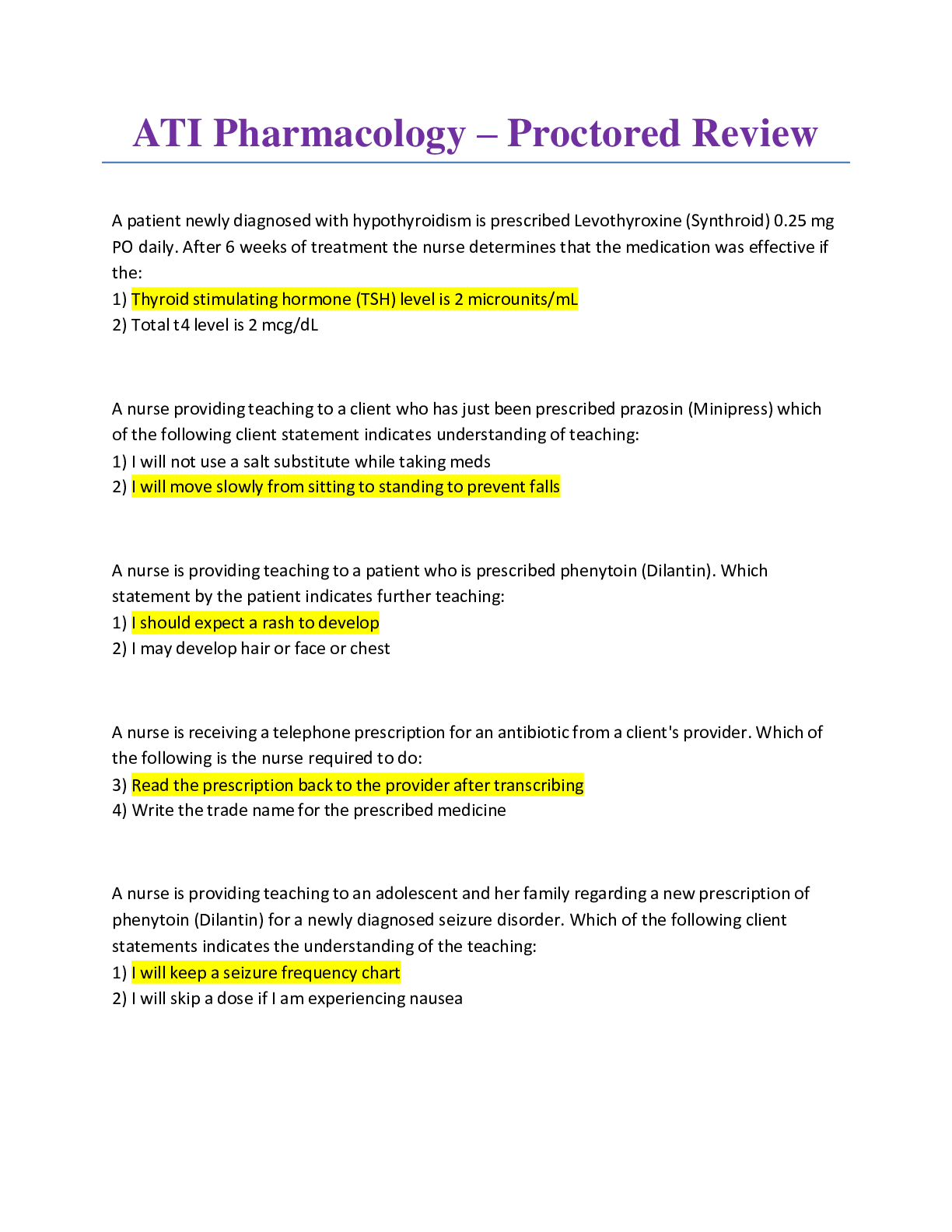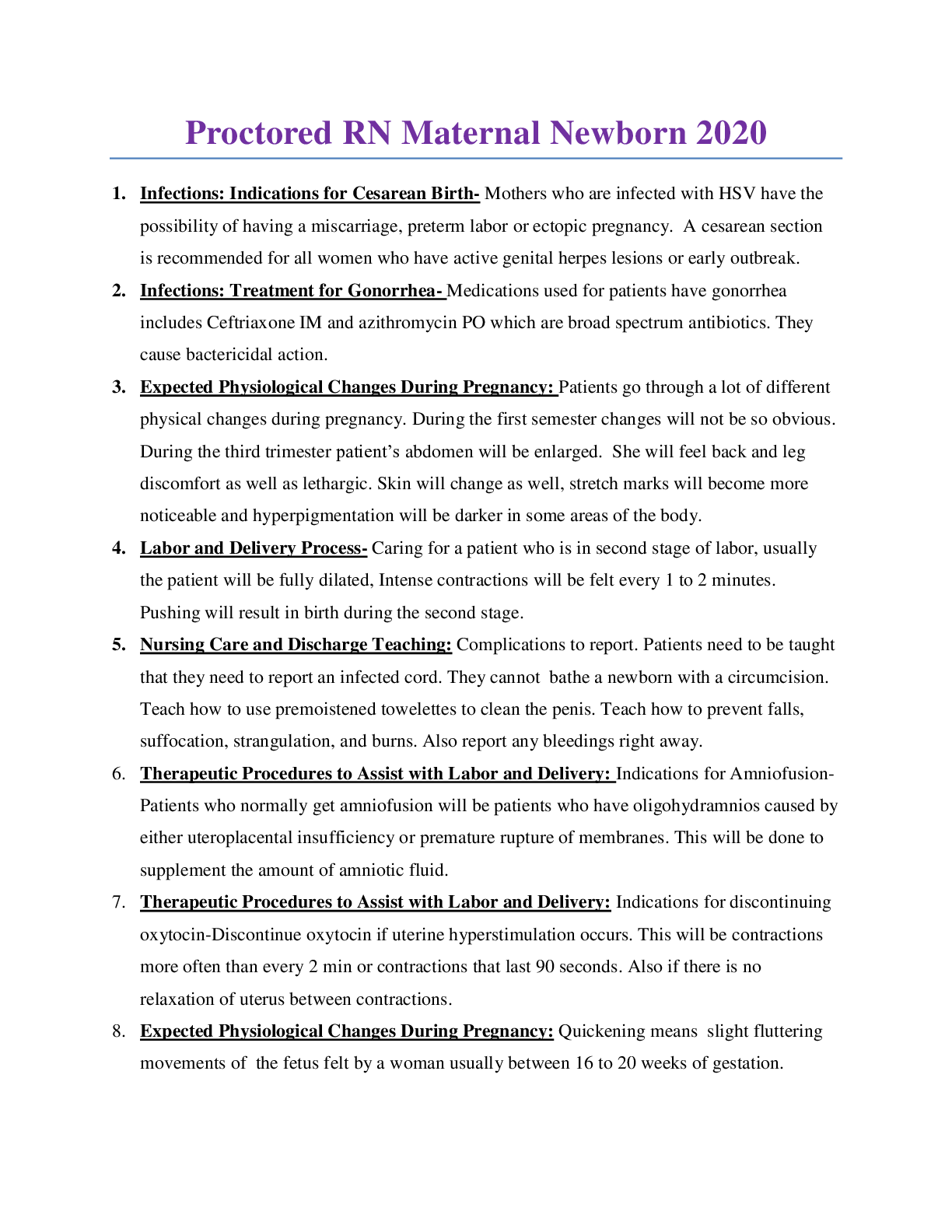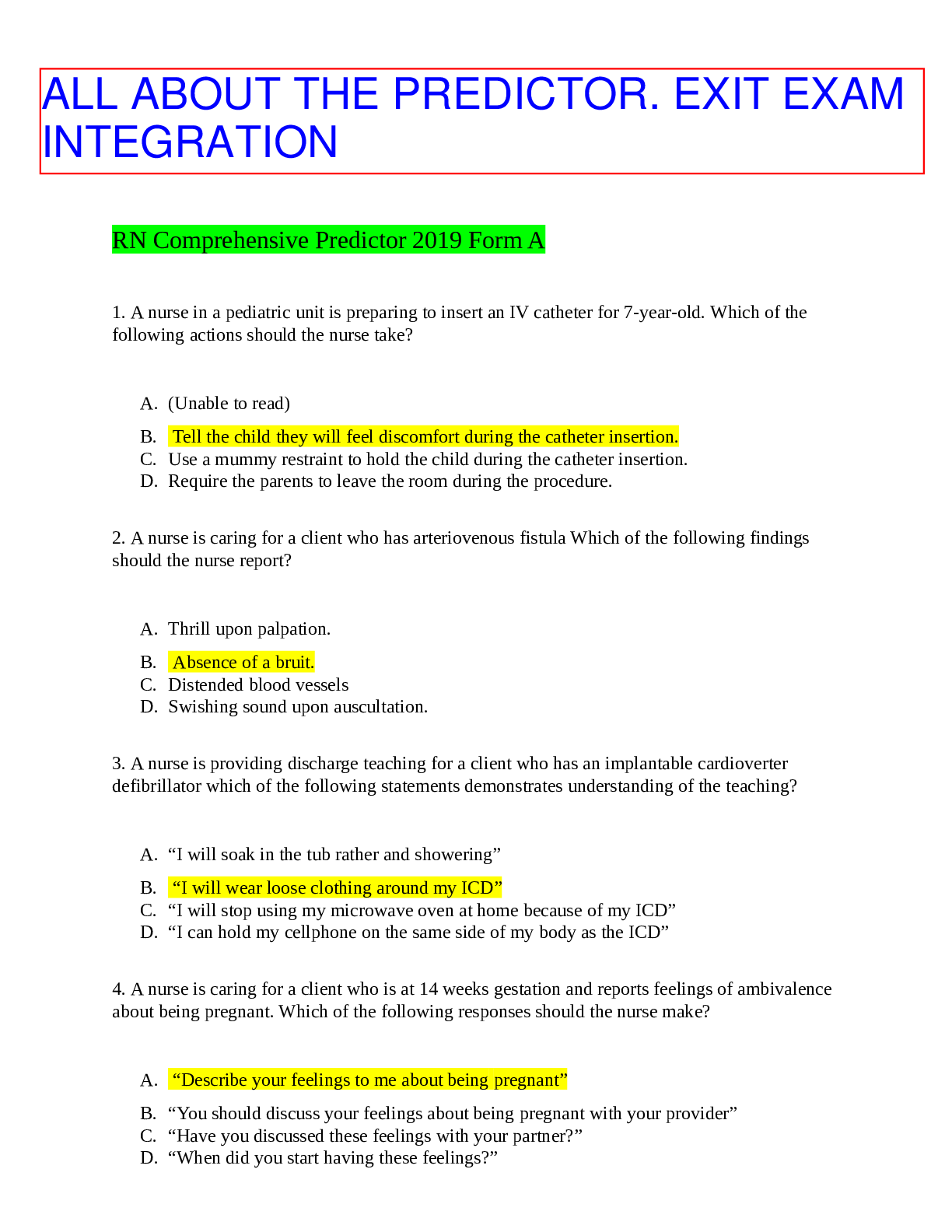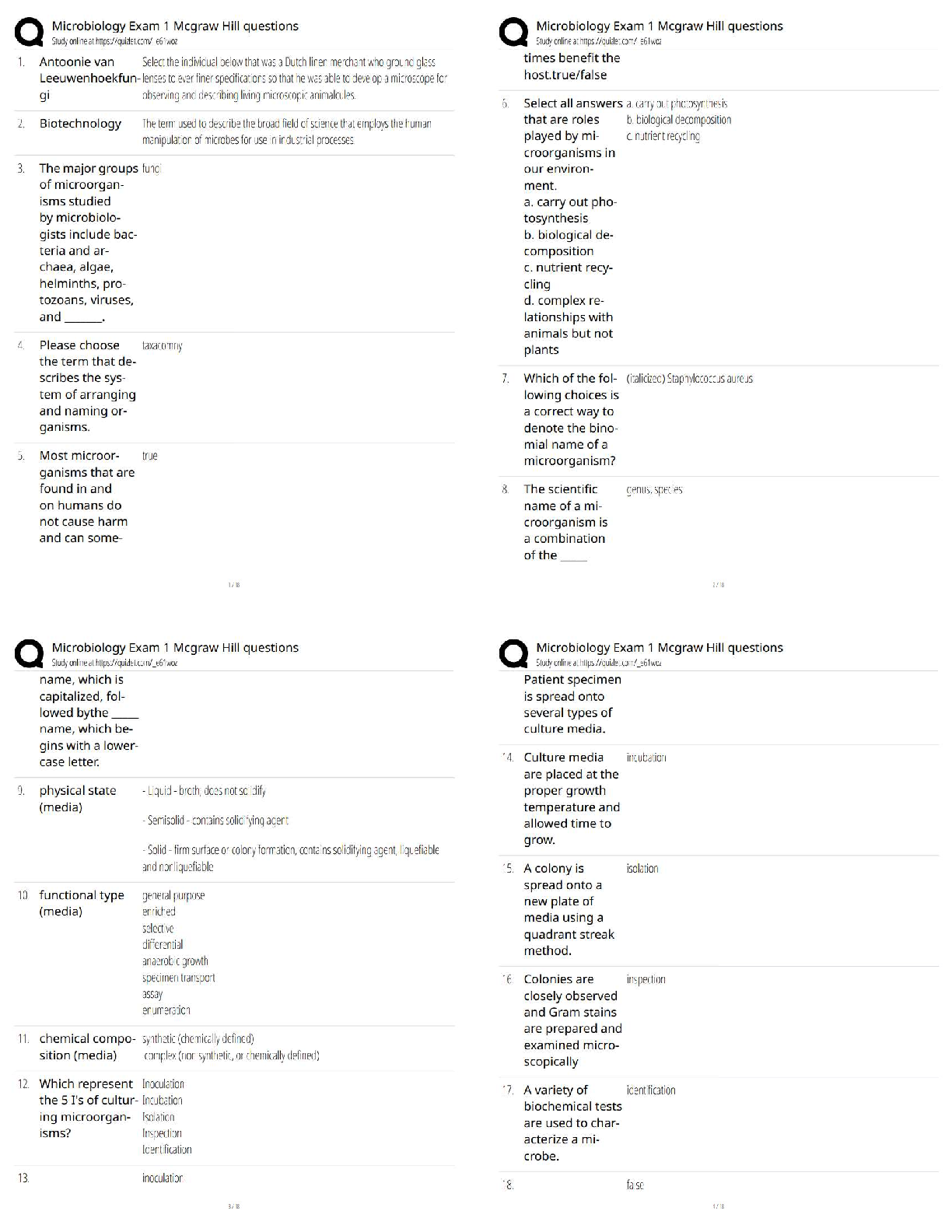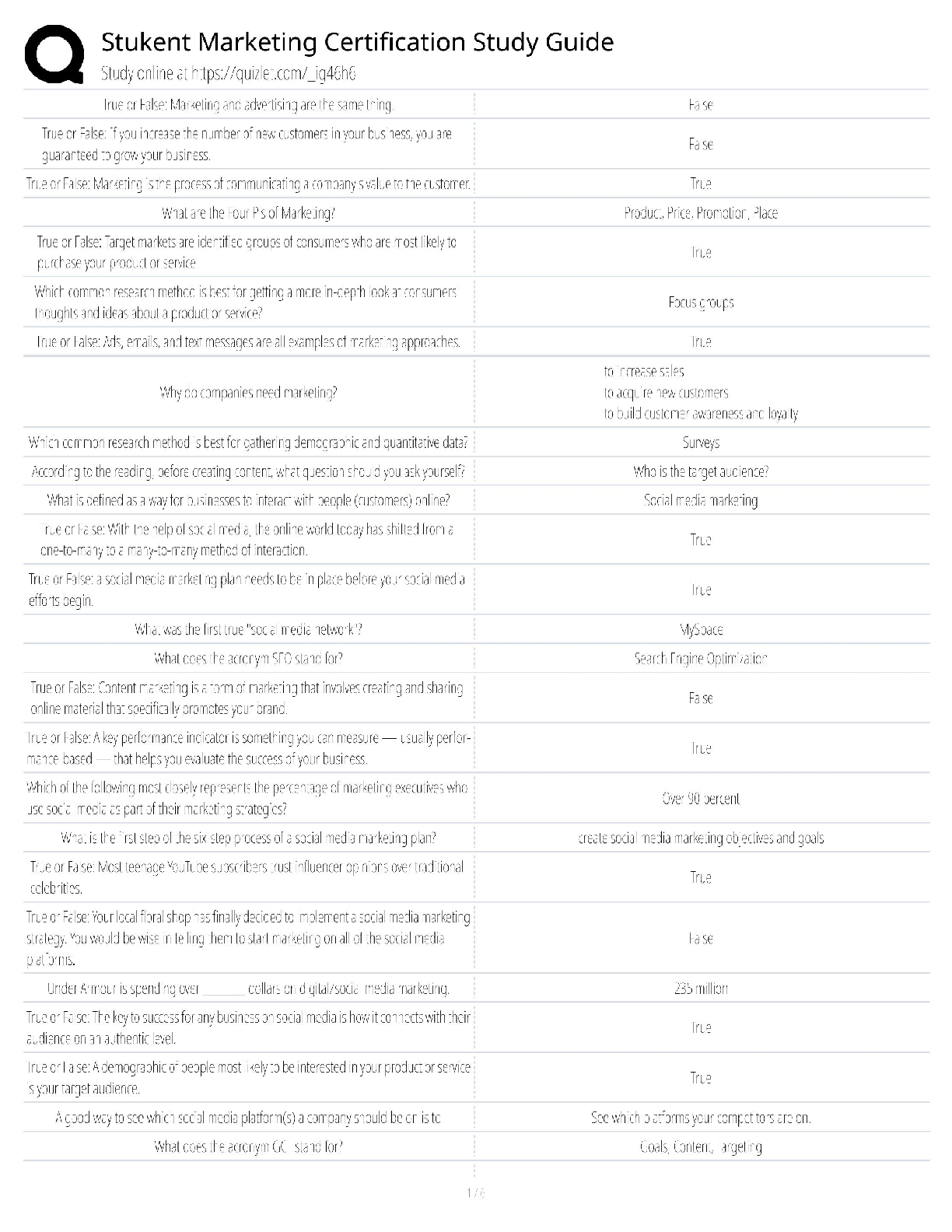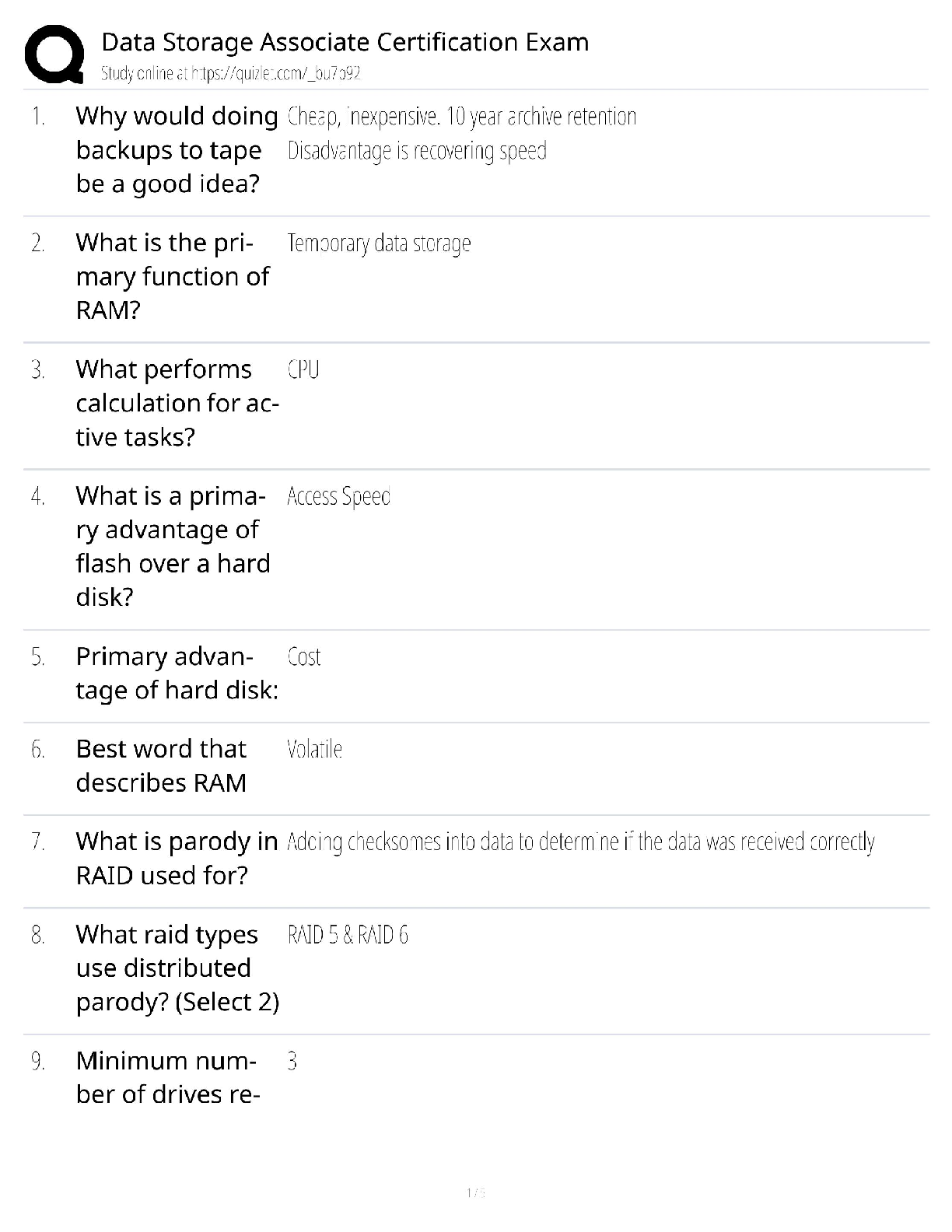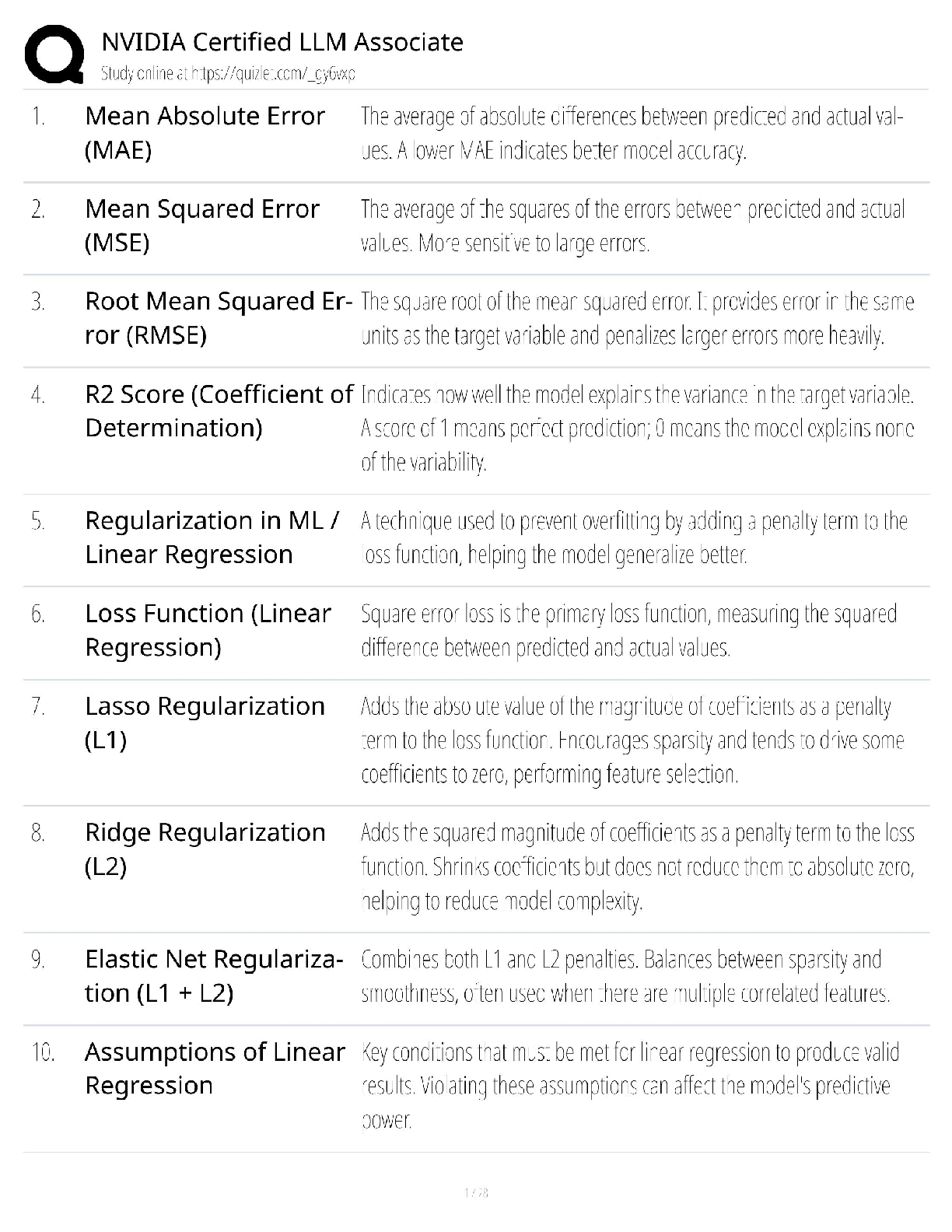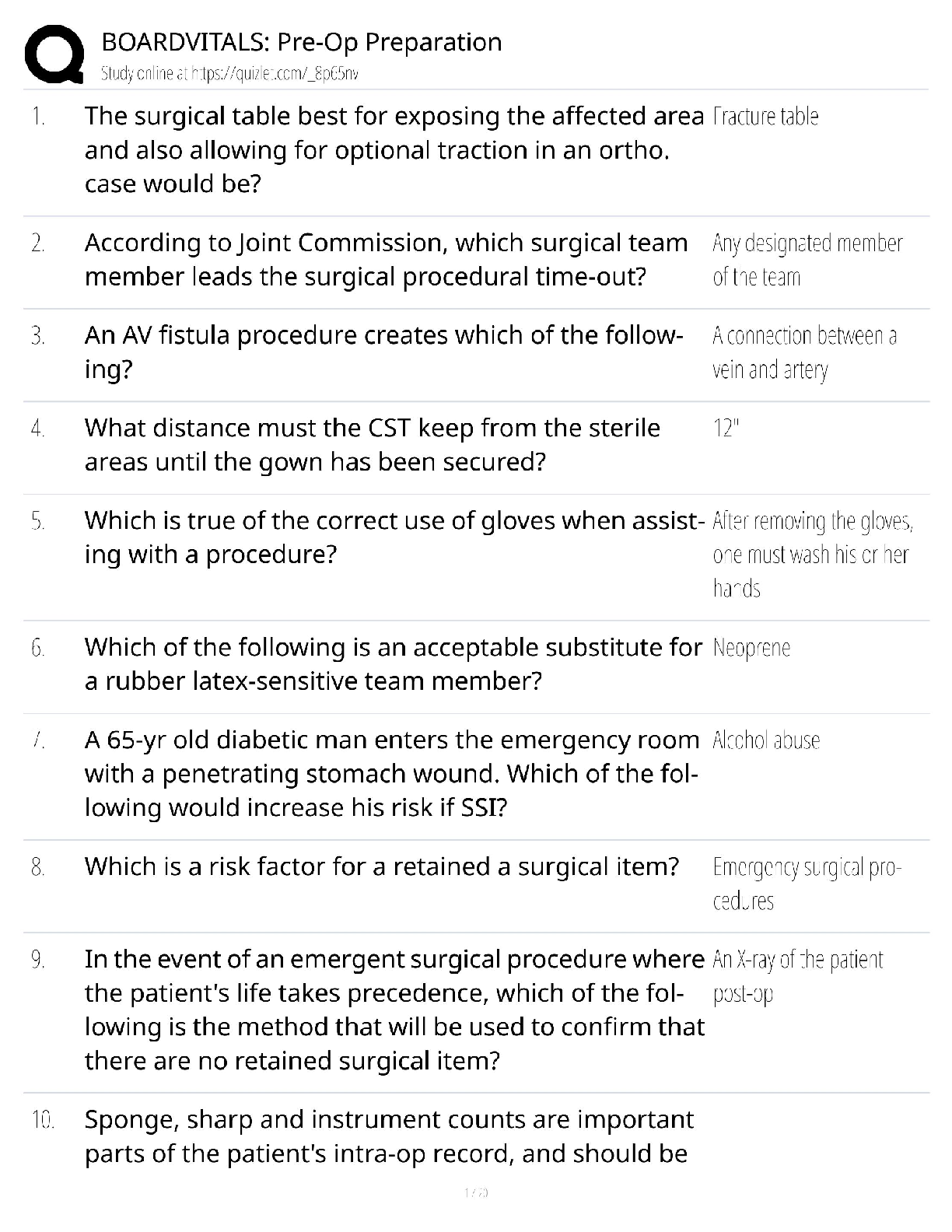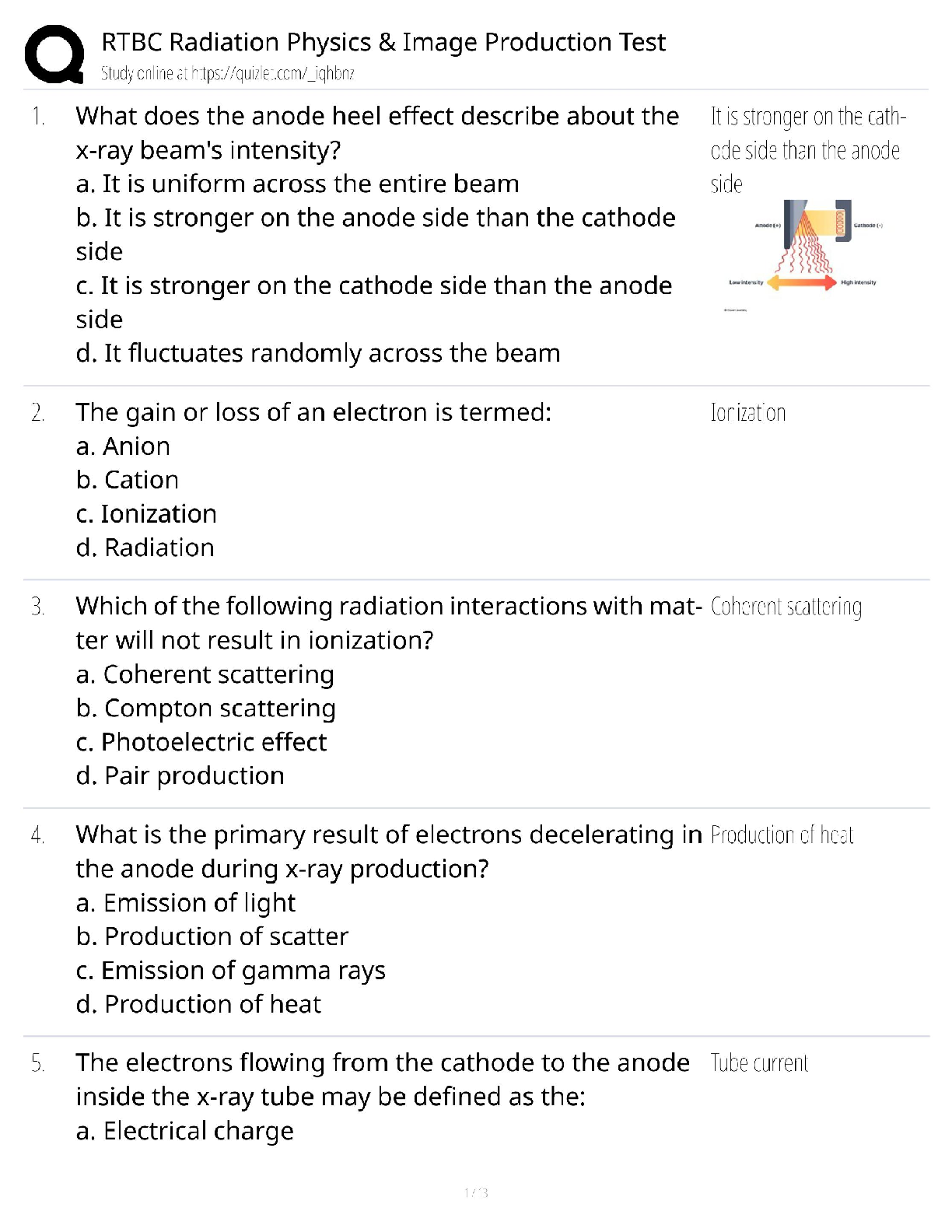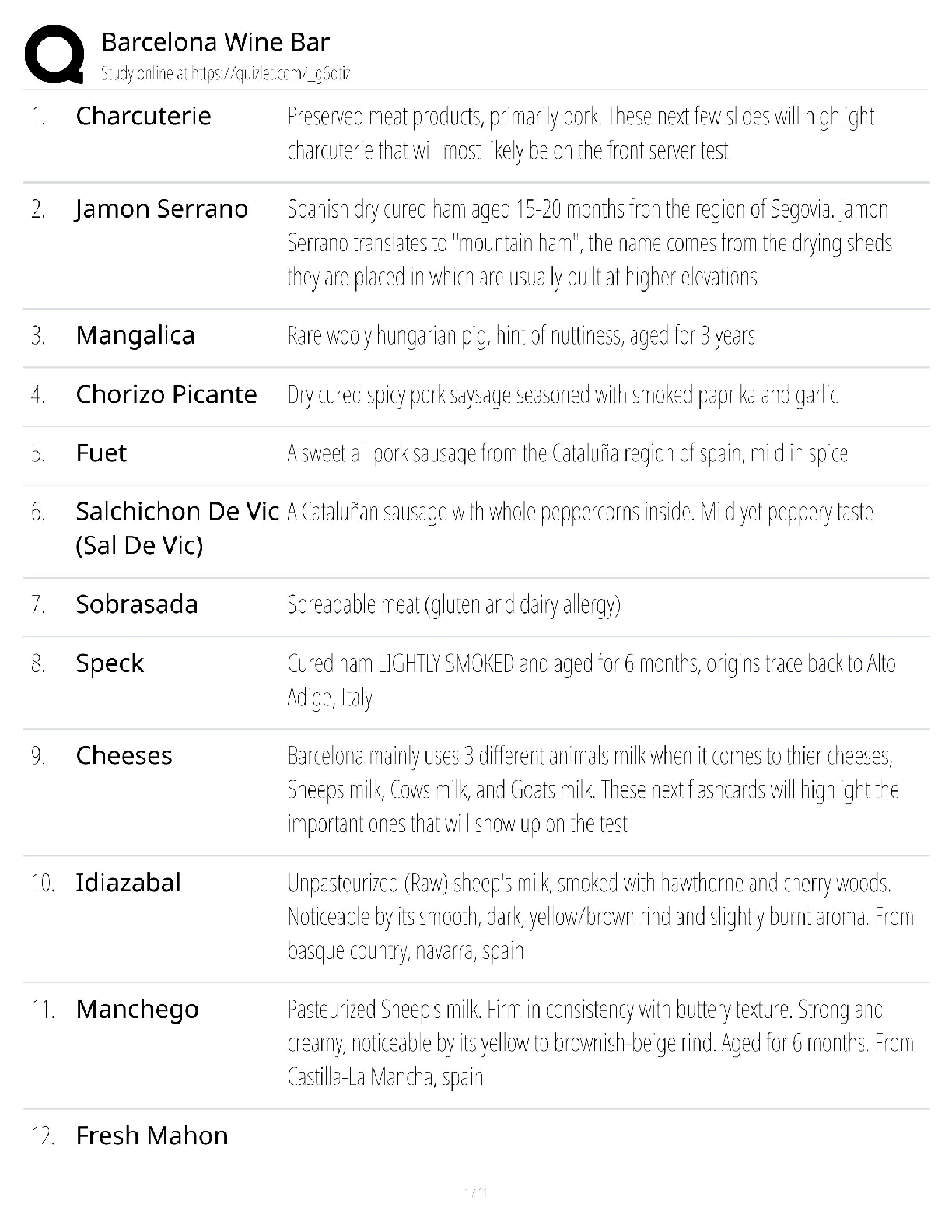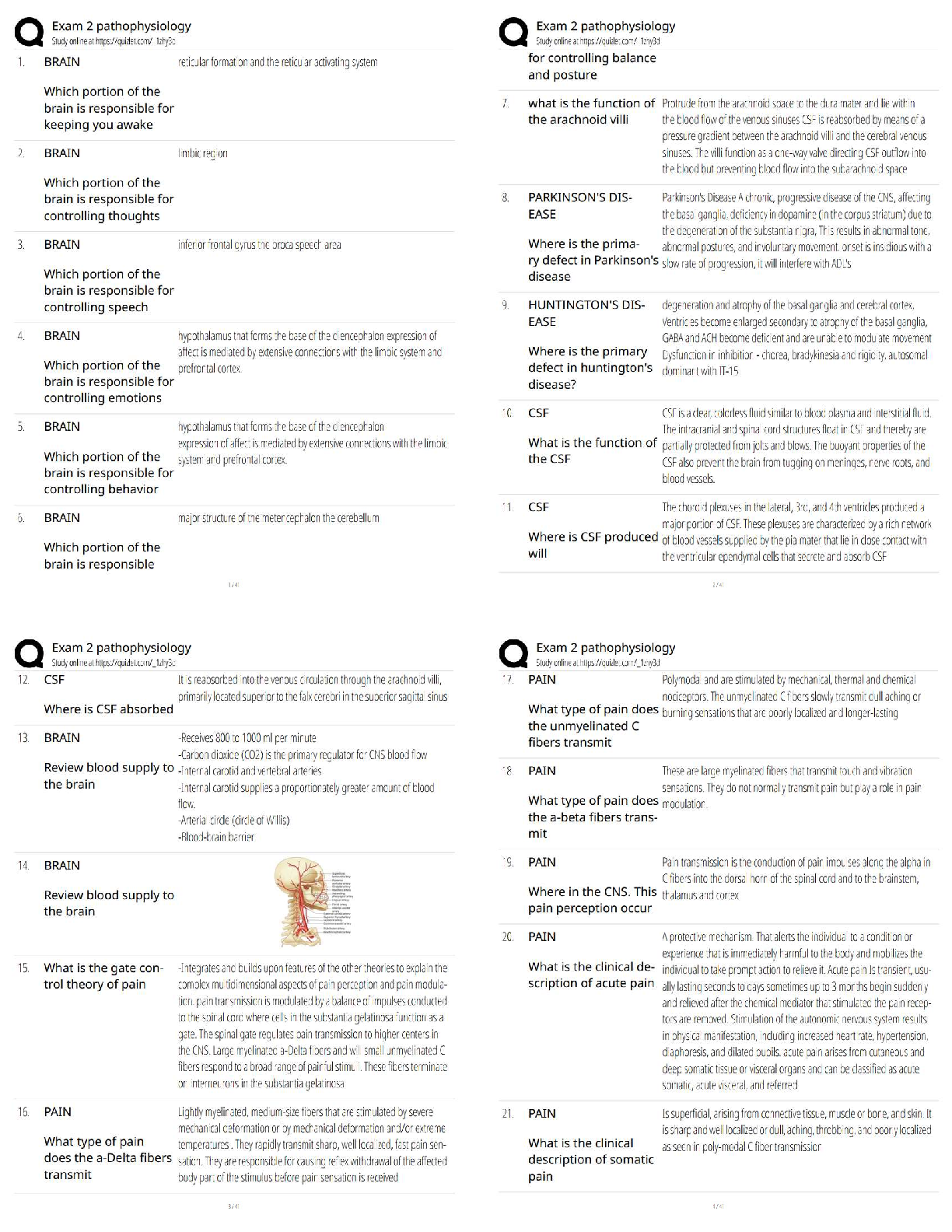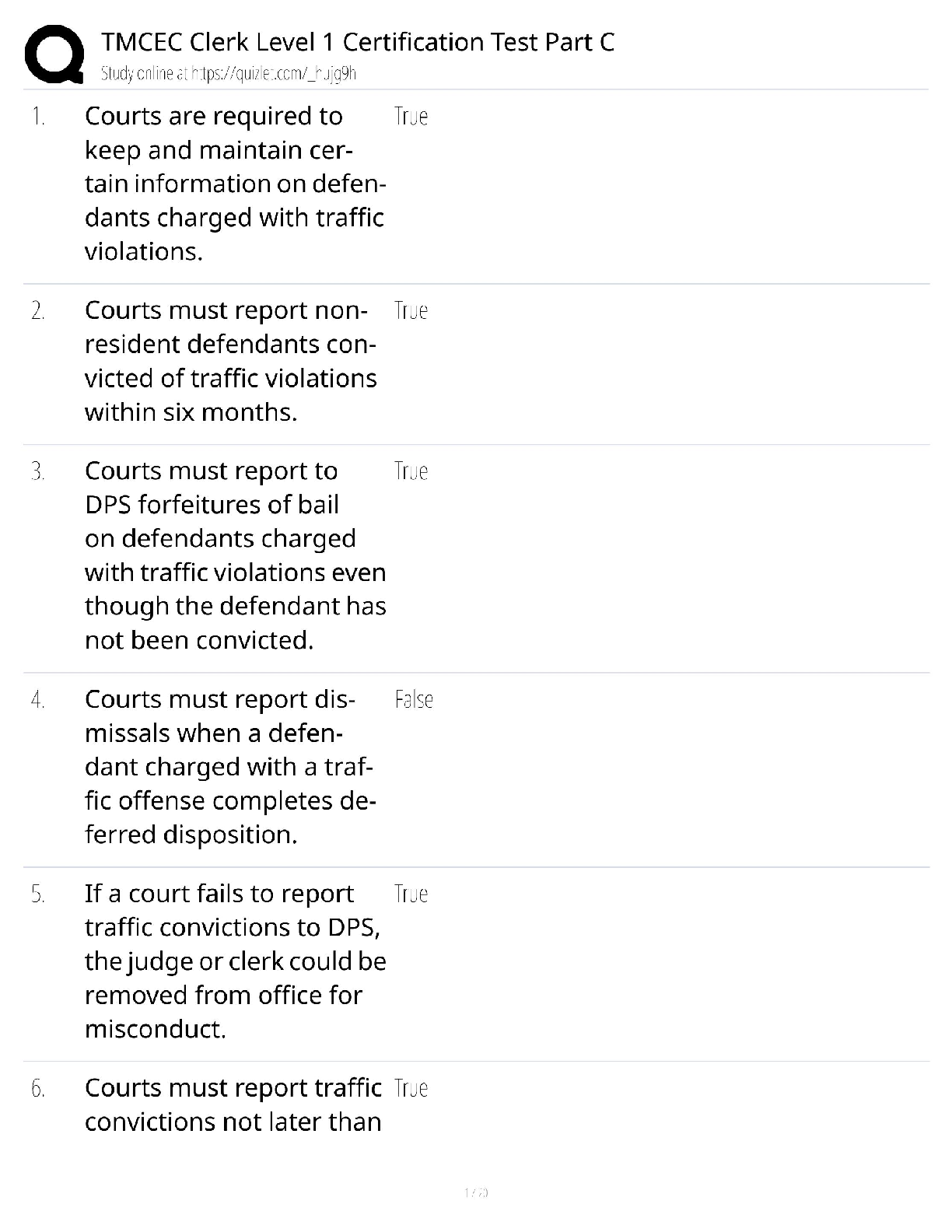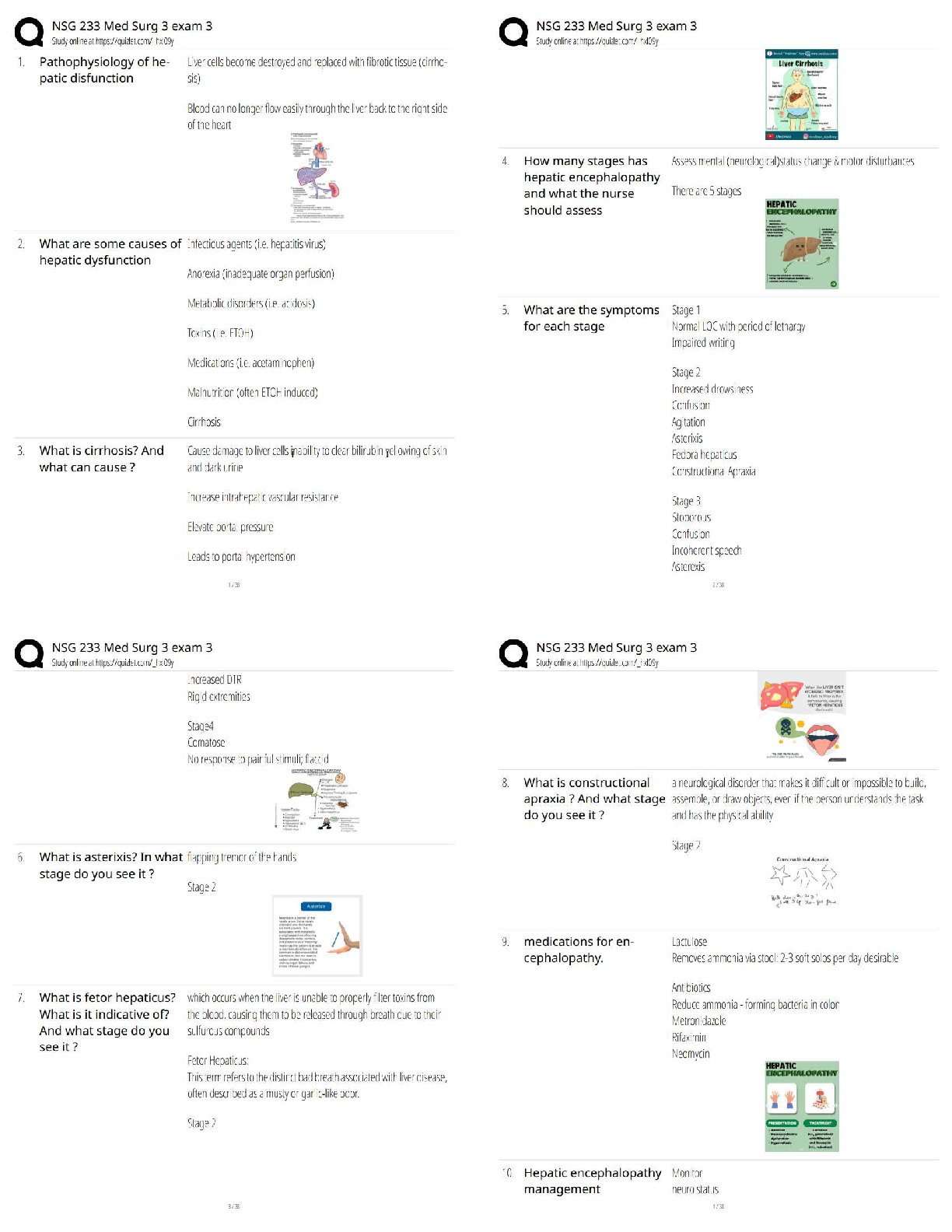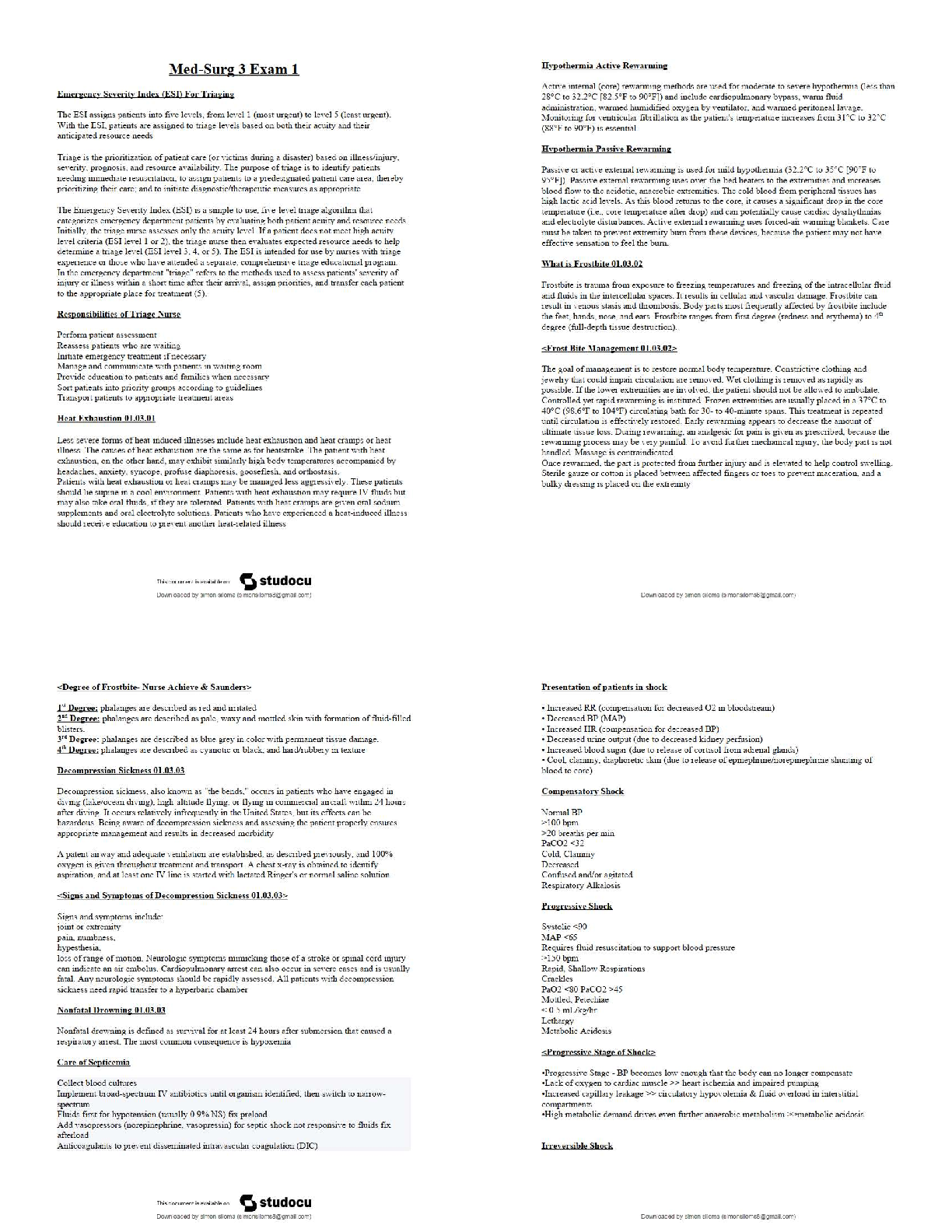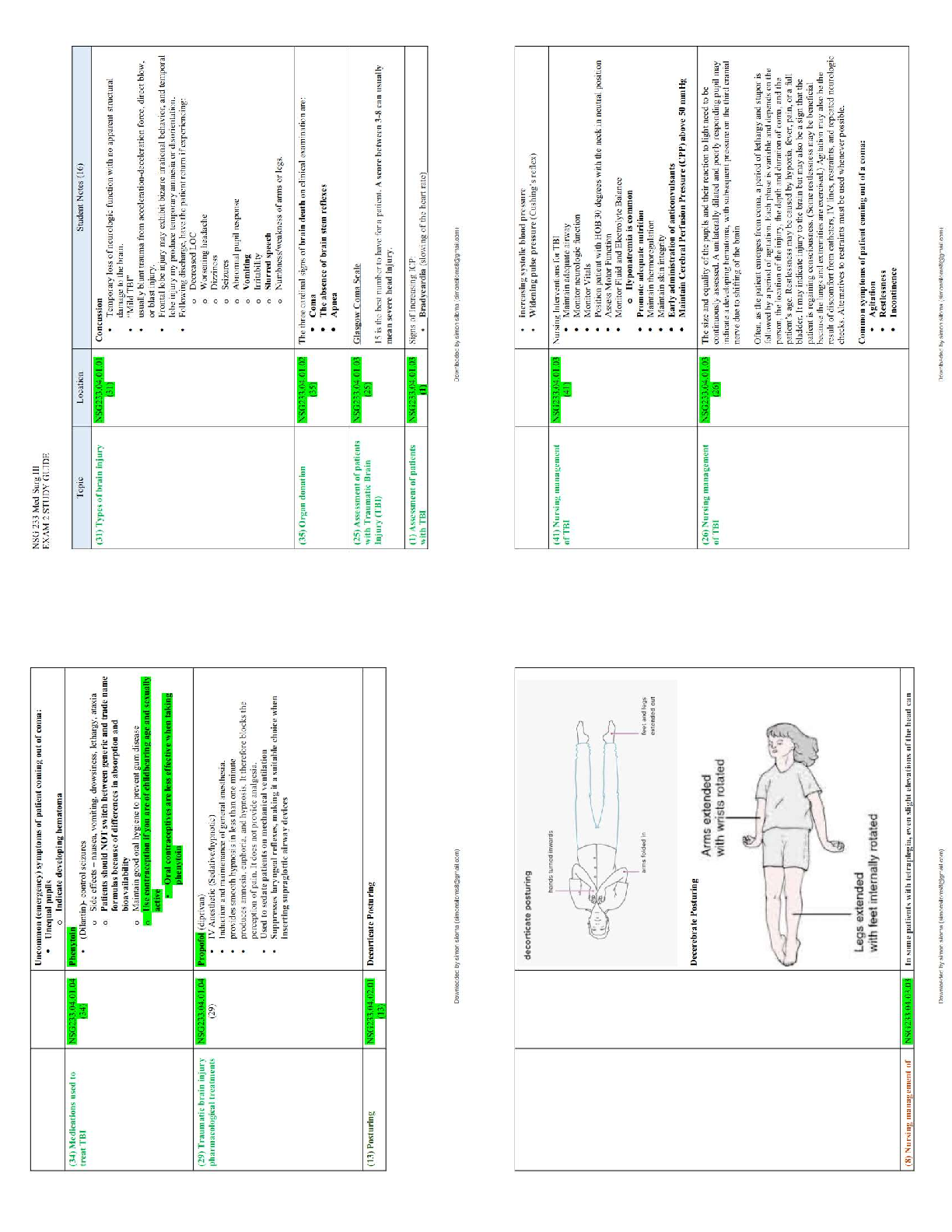ATI Capstone Content Review: Mental Health
Mental Health tips:
• All clients should have a Mental Status Exam, which includes:
o Level of consciousness
o Physical appearance
o Behavior
o Cognitive and intellectual
...
ATI Capstone Content Review: Mental Health
Mental Health tips:
• All clients should have a Mental Status Exam, which includes:
o Level of consciousness
o Physical appearance
o Behavior
o Cognitive and intellectual abilities
• The nurse conducts the MSE as part of his or her routine and ongoing assessment of the client.
• Changes in Mental Status should be investigated further and the provider notified.
• There are two types of mental health hospitalizations:
o Voluntary commitment and involuntary or civil commitment.
o Involuntary commitment is against the client’s will.
• Despite that, unless proven otherwise, clients are still considered competent and have the right to refuse treatment.
• Use the following communication tips when answering questions on NCLEX:
• If the client is anxious or depressed use
Open ended, supportive statements
• If the client is suicidal
use direct, yes or no questions to assess suicide risk
• If the client is panicked
use gentle guidance and direction
• If the client is confused
provide reality orientation
• If the client has delusions / hallucinations / paranoia
acknowledge these, but don’t reinforce
• If the client has obsessive / compulsive behavior
communicate AFTER the compulsive behavior
• If the client has a personality or cognitive disorder
be calm and matter-of-fact
• Treatment for mental health illnesses and disorders can include
Medications
Talk
behavior therapy
brain stimulation
• Clients undergoing care for mental health disorders may feel pressure to deny behavior or issues to appear ‘normal’.
• The nurse should always carefully assess each individual to ensure optimal response to therapies.
• The most common type of brain stimulation therapy is electroconvulsive therapy or ECT.
• ECT is generally performed for major depressive disorders, schizophrenia, or acute manic disorders.
• Most clients receive therapy three times a week for two to three weeks.
• Prior to ECT, carefully screen the client for any home medication use.
• Lithium, MAOIs, and all seizure threshold medications should be discontinued two weeks prior to ECT.
• After therapy, reorient the client as short-term memory loss is common.
• Anxiety disorders are common mental health disorders.
• Generalized Anxiety Disorder
• Panic Disorder
• Phobias
• Obsessive Compulsive Disorder
• Posttraumatic stress disorder (PTSD) are all considered types of anxiety disorders.
• Assess the client for
• risk factors
• triggers
• responses.
• A classic symptom of depression is
• change in sleep patterns
• indecisiveness
• decreased concentration
• change in body weight. Any client who shows these signs or symptoms should be asked if they have suicidal ideation. Teach clients to never discontinue antidepressants suddenly.
• Bipolar disorders are mood disorders with periods of depression and mania. Clients have a high risk for injury during the manic phase related to decreased sleep, feelings of grandiosity, and impulsivity. Hospitalization is often required and nurses should provide for client safety.
• There are several different types of abuse, including physical, sexual, or emotional. Abuse tends to be cyclic, following a pattern of tension building, battering, and honeymoon phase. When test questions appear related to abuse, look for the phase to determine the correct response.
• For the aggressive or violent client, setting boundaries and limits on behavior is important. The nurse should maintain a calm approach and use short, simple sentences.
More drug tips!
Common Psychiatric Medications
• SSRIs: Selective Serotonin Reuptake Inhibitors.
o These medications include
Citalopram
• Celexa
Fluoxetine
• Prozac
Sertraline
• Zoloft
o The client should avoid using St. John’s Wort with these medications, and should eat a healthy diet while on these medications.
• TCAs: Tricyclic Antidepressants.
o Amitriptyline
Elavil
o Anticholinergic effects and orthostatic hypotension may occur.
• MAOIs: Monoamine Oxidase Inhibitors.
o Phenelzine (Nardil) is an example.
Hypertensive crisis may occur with tyramine food ingestion
• care must be taken to avoid these substances.
• Educate the client to avoid all medications until discussed with provider.
• Atypical antidepressants.
o Bupropion
(Wellbutrin) is the most common example.
• Appetite suppression is a common side-effect.
• Headache and dry mouth may be severe and client should notify the provider if this occurs.
• Atypical antidepressants should not be used with clients with seizure disorders.
• Serotonin Norepinephrine Reuptake Inhibitors.
o Common SNRIs include
Venlafaxine
• Effexor
Duloxetine
• Cymbalta
o Adverse effects may include
Nausea
weight gain
Sexual dysfunction.
Antagonists
[Show More]




